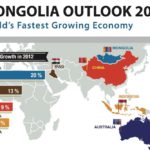Professor Jeong Yeon Lee has been with Yonsei GSIS since 2004, teaching a variety of economics-related courses at GSIS. He received his BA in Economics from Stony Brook University in New York, and his MA and PhD in Economics from the University of Pennsylvania. He has served as the chair of ITFM for multiple years, and in Fall 2015 stepped into the post of Associate Dean of GSIS. Gordon Gatlin sat down with him to discuss his academic background and research interests.
Gordon Gatlin: Thank you for sitting down with me for this interview. Most GSIS students know you as a professor of economics at GSIS, especially with the introduction to economics class. Besides the introduction to economics class, what other classes have you taught at GSIS, or perhaps even at UIC?
Prof. Jeong Yeon Lee: At UIC, I teach International Economics. At GSIS, I used to teach International Economics. I also teach International Finance, and I used to teach a course called Global Capital Markets, and one about Foreign Direct Investment (FDI).
GG: How did you become interested in economics in the first place?
JYL: Somehow, I got interested in economic policymaking, maybe in high school. Basically, my interest in government policy motivated me to study economics at the undergraduate level, and then I decided to later pursue a PhD in economics.
GG: What did you focus on in the economic field while you were a student?
JYL: In graduate school, my dissertation was about foreign direct investment and technology transfer. My main interest was in the role of technological change in economic growth. I especially focused on foreign direct investment as a viable means for technology transfer. After I finished my dissertation, I got an offer from the Korean Institute for International Economic Policy (KIEP). I continued to do some policy research on international trade and FDI. That’s one field that I am still doing some research on and have interest in. These days I am also interested in various issues related to economic growth, such as a possible role played by financial sector development or regional integration in economic growth.
GG: Can you elaborate a bit on those current research interests?
JYL: Well I mentioned financial sector development as one of my interests. I got involved in bond market development for emerging economies when I was an economist at the World Bank. I also worked on financial sector issues like corporate governance reform in Indonesia and financial sector restructuring in Korea as an economist at the Asian Development Bank. These experiences have made me interested in financial sector development, especially in relation to economic growth.
GG: Can you explain a bit more what you mean when you say “financial sector development”?
JYL: There can be different dimensions to financial sector development. One possible dimension is financial depth, or how deep the financial sector is. The financial sector itself can be divided broadly into two groups, one being financial intermediaries like the banks, and then the other being financial markets like the stock or bond market. The banking sector may play a bigger role in some countries while the markets may play a bigger role in others, but those two groups together make up the financial sector of an entire country. Thus, countries with a relatively bigger banking sector, or bigger markets, can be viewed to have higher financial depth.
Another dimension is access to the financial sector. A big banking sector doesn’t necessarily guarantee that everyone in the economy has fair access to banks. If only large corporations or people with good networks and connections can access the financial sector, then access to the financial sector has to be quite limited even when the sector itself is relatively large. One can also evaluate financial sector development in terms of financial efficiency. Even with a big sector, if efficiency is low, then good investment projects could have a hard time getting adequate funding while money is being wasted in bad ones. The last, but not least, is financial stability: making sure that the financial sectors can withstand financial crises.
And why does the financial sector matter in economic growth? Economists have been paying attention to financial sector development in relation to economic growth only quite recently. The financial sector didn’t get much traction in discussions on economic growth in the past. But, people realized that the financial sector plays an important role in allocating resources, so if the financial sector is better developed, then there can be more efficient allocation of resources, increasing total factor productivity and eventually leading to a higher rate of sustainable economic growth.
GG: You also mentioned regional integration in relation to economic growth. What interests you in that field?
JYL: Regional integration has been another one of my main interests in the past few years. As you know, the current Doha Round of trade negotiations within the WTO is having difficulties. With progress in multilateral trade liberalization more or less stalled, a lot of countries nowadays are turning to smaller scale integration. I’m interested in finding out the implications of regional integration for long-term growth.
GG: So you are looking at some of those smaller scale agreements and how they affect the financial market in particular?
JYL: There are many kinds of regional integrations, but I am particularly interested in the experience of European integration. European integration has progressed over the years; it first started as a customs union, and over time, expanded its scope to financial integration and a common currency. As a result, the European experience provides a good opportunity to examine the link between the depth and scope of regional integration and also the growth among the involved countries.
GG: Then are you attempting to look at the European experience and extrapolate what might happen in other areas experimenting with regional integration?
JYL: Europe’s experience certainly has interesting lessons for other regions, but one needs to be careful not to make any mechanical predictions for other regions solely based on Europe. There are many factors that have been specific only to Europe, and thus you want to effectively control for them before you apply the European experience to project the future path for other regional groupings.
GG: Turning to some current economic issues of note now, considering the recent financial events in China, such as the stock market collapse, maybe you can give us your view of the Chinese financial market in regards to the dimensions that you discussed? Some people say that the recent troubles are a sign that Chinese financial markets are not, in fact, very developed.
JYL: In China, the financial market is obviously not as well developed as in the US and some other OECD countries. There is room for development in the country’s financial sector. What’s happening in the Chinese stock market more or less reflects market expectations about future growth. Recently, the US and other developed economies have been rather weak, thereby limiting Chinese growth based on exports. Then, Chinese efforts to switch to more domestically based growth are only starting, so they have some way to go before they begin to see the effect of the new direction. All these developments have considerably weakened market prospects for future growth.
GG: Do you see the recent depreciation of the Chinese yuan as a reflection of market forces? I have heard from some sources that the depreciation is related to government backtracking on creating a more consumer-based market, that by devaluating, they’re trying to improve the export market for themselves.
JYL: That’s one possible speculation, but I think that one of the main reasons for the depreciation is that the Chinese government changed their method of pegging the Chinese yuan so that the mid-point in the band better reflects the market-based value of the currency. Therefore, market forces played a big role in the depreciation. The introduction of the new pegging system is part of the Chinese government’s efforts to have the yuan included in the IMF SDR basket. Without a doubt, the new pegging system was also expected to have some desirable side effects at the time of introduction, as the expected depreciation would help the country’s exporting sectors.
GG: What do you think of China’s recent Asian Infrastructure Investment Bank (AIIB) project, and, in particular, what is your interpretation of China’s intentions in creating it?
JYL: Even though many parts of China have achieved a fairly high degree of development, still they have areas that need to be developed. Also in Asia, there are many other countries that need more investment in infrastructure. Therefore, the provision of additional funding for infrastructure development in Asia would make much economic sense. But, the creation of international institutions cannot be motivated by purely economic reasons. For example, why does not Beijing simply put additional funding into the existing institution, namely the ADB? If Beijing wants to have a bigger say over the future course of infrastructure investment in Asia, it makes more sense for them to create a new institution where they are a largest shareholder rather than putting more funding into the ADB where Japan and the US hold the biggest voting rights.
GG: Do you think it’s possible for the AIIB and the ADB to be complementary institutions, or will they necessarily become conflicting?
JYL: I would expect some rivalry to develop between the ADB and AIIB, but despite any political motivations, I’m sure those two institutions would be able to find some room for cooperation. The funding provided by the ADB is by no means enough to cover the needs of the Asian region, even with its partnership with the private sector, so a second institution providing additional funding could definitely help the process. There can even be some healthy competition between the institutions.
GG: As a final question, do you think that Janet Yellen and the Fed in the US made a good decision by delaying raising interest rates?
JYL: There is no black and white answer to that question. Of course, you can make an argument for delaying raising rates, just like the decision made by the Fed, because even though the numbers for the US economy themselves are not too bad, the slowdown of the Chinese economy is not something that can be simply ignored at this juncture. But, at the same time, interest rates will have to rise sooner or later, and putting off the inevitable only creates bigger uncertainty in the financial market. So, you could also argue that raising rates now would better serve the US economy and other economies, especially emerging economies, than delaying and creating bigger uncertainties.
GG: Thank you, Professor Lee, for meeting with me today and speaking on these topics.
JYL: Thank you.
- NOVAsia Is Hiring: Call For Applications and Contributors for Spring 2025! - February 26, 2025
- NOVAsia Is Hiring: Call For Applications and Contributors for Fall 2024! - August 20, 2024
- NOVAsia Is Hiring: Call For Applications and Contributors! - February 19, 2024






